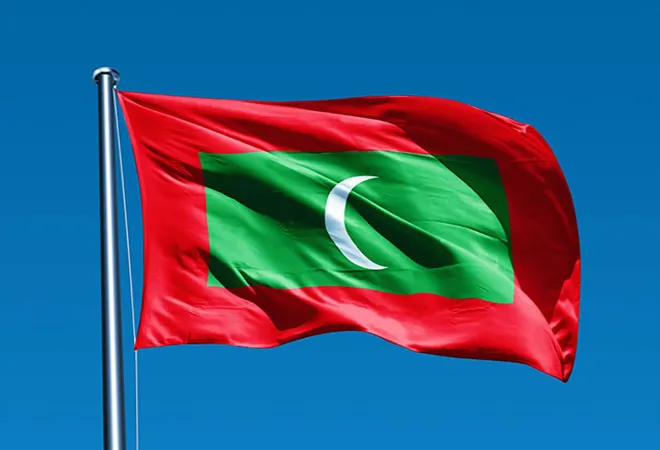There is an interesting phenomenon in Indian strategic thinking: every time there is a crisis in which New Delhi is expected to play a role, a growing chorus arises, advising Indian policymakers to tread with caution. It can be an India-made crisis or one in which India may have had no real role. It can be a crisis in India’s neighbourhood or further away from its periphery, but intellectual response often remains one of “wait and watch”, underscoring why New Delhi should not do anything substantive. A plethora of reasons are provided why it would be disastrous for India to pro-actively shape the crisis.
Certainly, states should behave responsibly in external relations and foreign policy realism demands that costs of external outreach should be carefully weighed by policymakers. But in India’s case, intellectual consensus in favour of “treading with caution” is becoming not only monotonous but also dangerous at a time when New Delhi wants to enhance its credibility as a security provider in certain parts of the world. And this when the same consensus often bemoans India’s inability to match Chinese shrewd foreign policy behaviour, especially in India’s neighbourhood.
The Maldives situation is symptomatic of this trend. There are several factors which make New Delhi’s handling of the crisis in Malé strange. First, there was a spectacular intelligence failure in that New Delhi seems to have been caught off guard by President Abdulla Yameen’s actions. If New Delhi’s ability to assess political developments in its own vicinity is so poor, we should disband our intelligence services. Maldives is a key state for India in the Indian Ocean region, a region in which Indian policymakers profess a keen interest. Yameen’s flirtation with Islamists and China is a well-known fact. And yet no special attention was being paid to a small archipelago by a government that professes a “neighbourhood first” policy.
But once the crisis emerged, New Delhi had a small window of opportunity to demonstrate its political and military clout in the region. That window was allowed to be frittered away as New Delhi entered into a “paralysis by analysis” phase. Instead, New Delhi was left with issuing pointless ultimatums, which Yameen just shrugged off. India’s suggestion that the supreme court’s ruling should be promptly implemented was clearly given the short shrift by Yameen. And hours after India asserted that it was important that the island nation quickly returns to the path of democracy and the rule of law, expecting that there will be no extension, Yameen pointedly extended the state of emergency by another 30 days. All New Delhi could do was express its deep dismay. And while the Indian military conducted some exercises, the People’s Liberation Army Navy (PLAN) could also be seen in the eastern Indian Ocean. We can keep on debating if at all the Chinese navy was in the region but the message has gone out to all who matter.
This begs the question as to why New Delhi made public demands when it was quite clear that Yameen would rebuff them. India did this not once but twice and it is incredible that our finest diplomats do not see the costs this will impose on India in the future. India’s allies in the Maldives are reduced to beseeching India to intervene and all Indian diplomacy has done so far is to give Yameen multiple opportunities to demonstrate who really is calling the shots. Surely some thinking would have gone into the fact that if Yameen doesn’t take Indian concerns into account, then what would New Delhi do to raise the costs for him? Going by the Indian behaviour till now, it is almost as if no real effort has been made to ratchet up the pressure.
China, meanwhile, has been rather successful in demonstrating its support for a corrupt Yameen government, which it wants to support. It has taken a clear side and it is going all out to help him. India meanwhile is treading with caution and in the process is gaining no favours with Yameen and is in danger of losing its allies in the nation.
The long-terms costs of such irresponsible behaviour will be quite significant. India’s allies in South Asia and beyond will now be even more wary of New Delhi’s ability to help them. Why would a Sheikh Hasina in Bangladesh or a Maithripala Sirisena in Sri Lanka believe in India’s support when they would see a more determined China willing and able to shape regional dynamics as New Delhi merely looks on? India’s talk of an “Act East” policy or an Indian Ocean presence sound hollow when its ability to shape outcomes in its own neighbourhood is so palpably limited. We can keep on believing that the logic of geography means an India-first policy of our neighbours. But our neighbours know that China is now reshaping the geographical realities. For a government that handled the Doklam standoff with China quite effectively, it is a pity to see those gains being frittered away in the Maldives.
Meanwhile, even as our thinkers advise policymakers to tread lightly, Beijing is already in talks with Kabul over the construction of a military base. And the Indian strategic community has forever been debating if New Delhi should even have a military footprint in Afghanistan. There are times when major powers have to take risks. It does have costs but, in T.S. Eliot’s words, “Only those who will risk going too far can possibly find out how far it is possible to go.” Treading with caution can no longer be the default option for an India with major power aspirations.
This commentary originally appeared in Live Mint.
The views expressed above belong to the author(s). ORF research and analyses now available on Telegram! Click here to access our curated content — blogs, longforms and interviews.




 PREV
PREV


